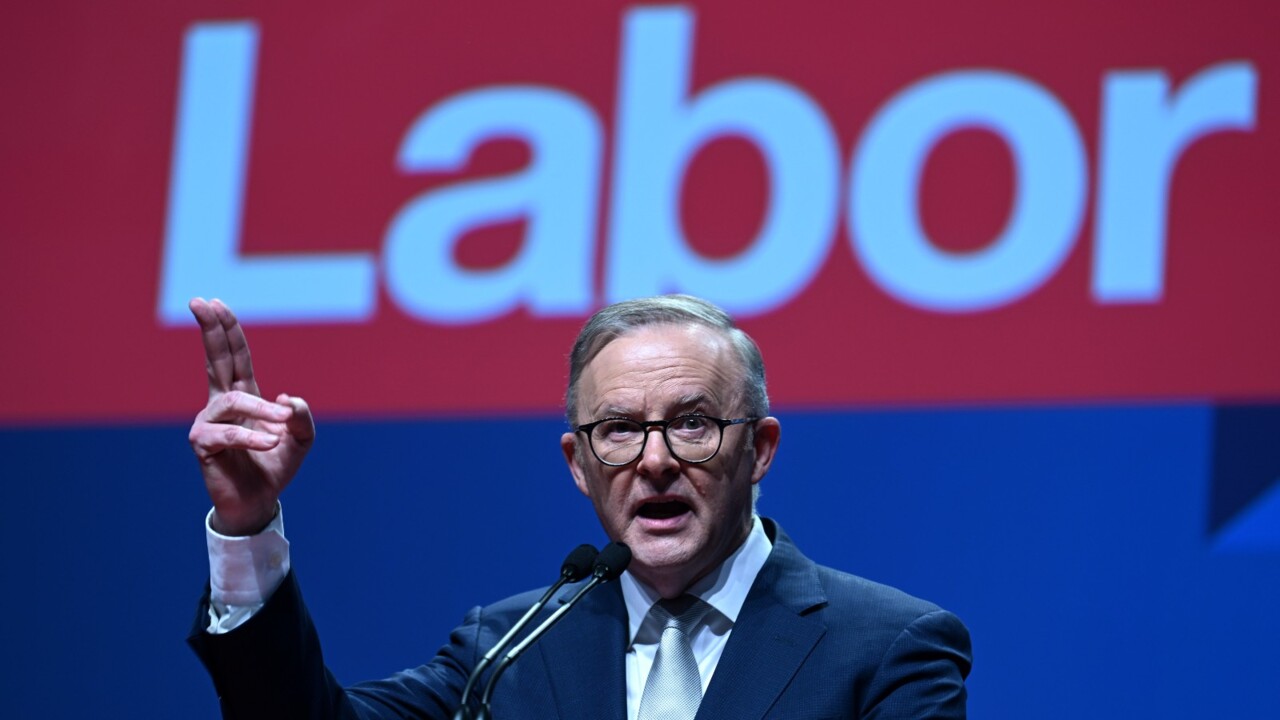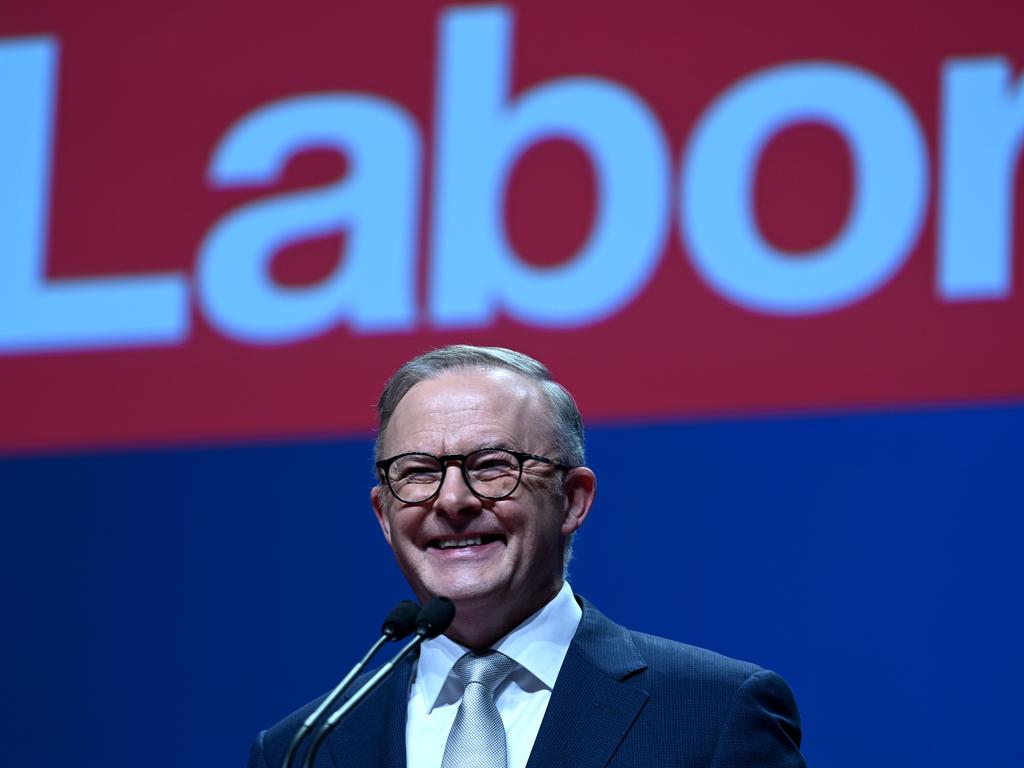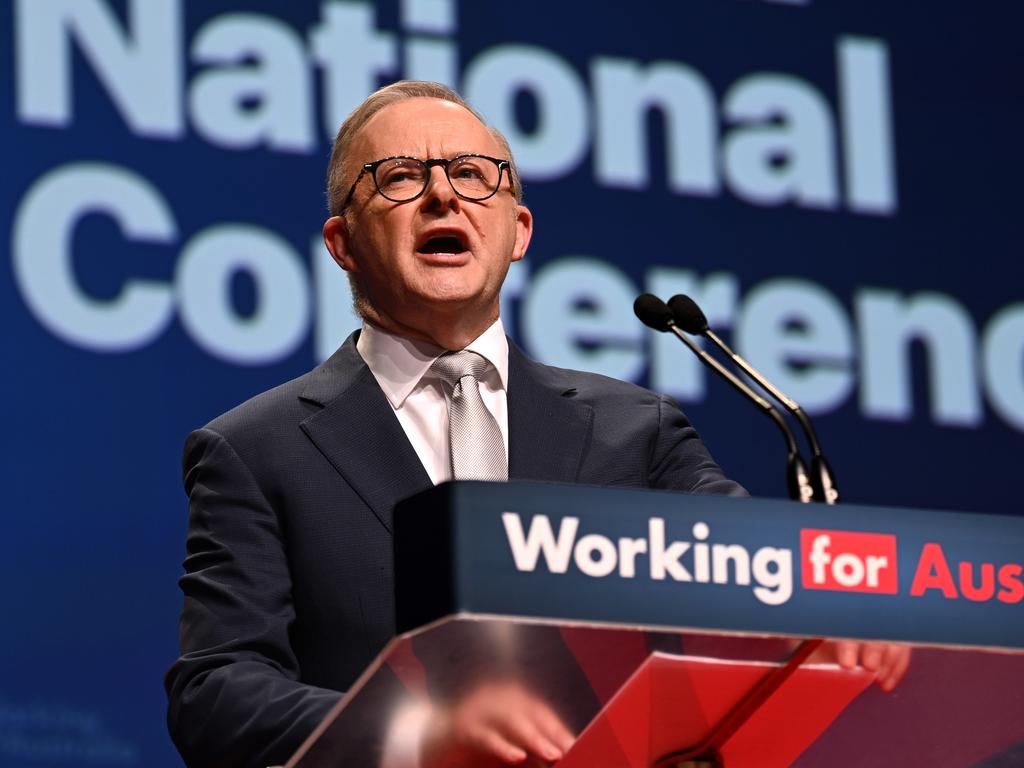Labor conference: Anthony Albanese indulges party as he vows to change nation


This is a wide-reaching claim that goes beyond the election promise of safe renewal over revolution.
What does this change represent and how far will Albanese let the party go in its pursuit?
In his address to the national conference, the Prime Minister offered little vision that would give the electorate a sense of what this means and how it would be fulfilled. Albanese clearly seeks to broaden Labor’s electoral mandate while appeasing the party’s base that he has already delivered on their demands.
This was a speech rich in rhetorical appeal but lacking in outlook. It continued the revelry of Labor’s historic electoral moment of 16 months ago.

Not that this should surprise, even if greater expectations were placed on Albanese to offer a flavour of future reform.
This was the first address by a Labor prime minister to a national party conference in more than a decade, since Julia Gillard in 2011. It was the first in five years to be held with delegates under the one roof.
Albanese wanted to remind those present of the significance of Labor’s electoral achievement.
Appealing to the party faithful, he outlined the fulfilment of Labor policy pledged at the election.
Success, he said, was measured by what had been taken out of the party platform rather than that which factions might be seeking to introduce, “not because the commitments are no longer important or necessary but because they are now the law of the land – and making a difference in people’s lives”.
Beyond the room, he pledged to put cost of living as the government’s first priority.
He also road-tested a new campaign pitch, “Working for Australians”, which seeks to redefine Labor’s relationship with an increasingly cranky electorate.

He talked of Labor’s aspirations for long-term government and a prolonged period of power, captured by the misty-eyed notions of Labor being the only party of reform.
There was no map for Labor’s longer-term objectives other than an assertion that the party was not in office for “mere gestures”. Labor’s mission was to transform the nation, with Albanese conceding that to achieve this, he needed to take the nation with him. But the nation needs to know where it is going first.
Albanese opted for safety rather than vision, reprosecuting the case against Scott Morrison and the Coalition while reliving Labor’s victory. He avoided the trigger points that could have derailed the conference.
Rather than defend AUKUS, he chose not to mention it.
Albanese’s speech was more focused on the immediate past rather than the long-term future.
Yet if his aim was to play it safe and get through the conference unscathed, in that he succeeded.






Anthony Albanese has declared that Labor’s goal is to change Australia.